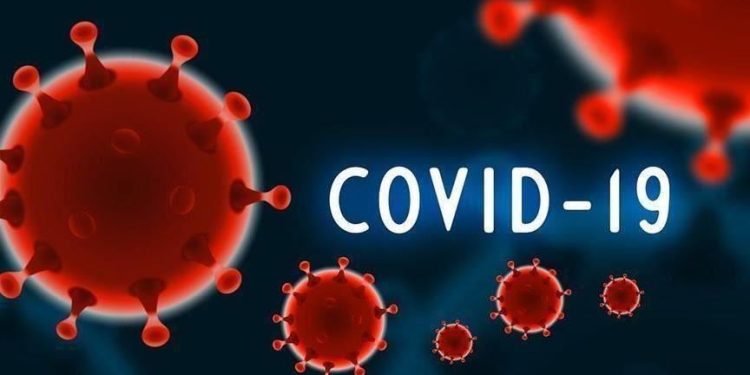Paid But Never Delivered: The Costly Gaps in Ghana’s COVID Fight
- Audit Reveals Major Accountability Failures in Ghana’s COVID-19 Spending
When COVID-19 hit Ghana in 2020, the government moved quickly, allocating billions of cedis to respond to an unfolding health and economic crisis. Hospitals were to be built, vaccines procured, frontline workers insured, and millions fed and sheltered. But five years on, a sobering follow-up audit by the Auditor-General has cast a long shadow over those emergency measures.
In a detailed report obtained by NorvanReports, auditors found that while some corrective steps have been taken, a number of the most serious concerns from the initial audit remain unresolved. Projects were paid for but never delivered, equipment meant to save lives was never used, and critical funds remain unaccounted for.
Vaccines Paid For, But Never Received
At the heart of the report is a staggering revelation: the Ministry of Health paid over US$120 million to international partners for vaccines yet received only US$38 million worth. Despite repeated explanations involving storage constraints and low uptake, no credible evidence was presented to justify why US$81.8 million worth of vaccines remained undelivered.
Even more troubling, the Ministry now claims the outstanding obligation is US$74.7 million, a significant jump from the original amount. The Auditor-General, unconvinced, has cautioned the Ministry not to make further payments unless the figures are justified.
Ghost Isolation Centres and Abandoned Projects
In 2020, as infection numbers climbed, the government announced an ambitious plan to construct isolation and treatment centres across the country. But as of late 2023, many of those centres were either never completed or never used.
- A GH¢15.3 million lease for uncompleted buildings in Adaklu turned into a GH¢20 million remodeling project, yet the facility remains unutilised.
- In the North-East Region, GH¢4.5 million was paid to a contractor who abandoned the site just months into construction—leaving only a foundation.
- Three completed isolation centres, including one at Korle Bu, remain idle and unequipped to treat patients.
For many Ghanaians, these empty facilities stand as concrete symbols of waste during a time of desperation.
Missing Medical Equipment and Questionable Allocations
The audit also uncovered troubling instances where equipment never reached intended health facilities—or went where it never should have.
Medical equipment worth US$247,000 was sent to health centres but remained unaccounted for in Oti and Eastern regions. In another case, over US$110,000 worth of medical supplies were issued to a private hospital that had no record of treating COVID-19 patients.
Despite official approval, the Ministry of Health could not explain why public funds were used to equip a private, non-participating facility—and no reimbursement has been made.
Life Insurance Without Lifelines
The government also promised GH¢10.3 million worth of life insurance for 10,000 health workers. However, the audit found that no comprehensive list of beneficiaries existed at the time of payment.
While claims totalling GH¢5.2 million were made for 420 workers, auditors could not verify whether the intended recipients received the benefits. In a crisis meant to protect the protectors, many health workers may never know they were covered.
Overpayments and Tax Gaps
The report details several financial missteps, including:
- Advances exceeding legal thresholds: Suppliers received US$27.9 million and GH¢9.9 million in upfront payments, far beyond what the law allows.
- Failure to deduct taxes: Payments made without appropriate tax withholding cost the state revenue, some of which has since been recovered.
- GH¢1.4 million in over-invoicing for food supplies by the National Food Buffer Stock Company, which has now been addressed.
While some funds have been recovered or reconciled, others remain lost to accounting lapses or poor controls.
Hope in Reform, But Trust Is Fragile
In response to widespread lapses, the Ministry of Finance issued Emergency Expenditure Management Guidelines in mid-2023. Several ministries have now closed rogue accounts and integrated all transactions into the government’s financial management system (GIFMIS).
Yet the damage to public trust is done. As the Auditor-General notes, many corrective actions came after auditors intervened, not from internal discipline. Of the 38 key recommendations tracked, a significant number remain “not implemented” or “partially implemented”.
The Bigger Picture
What emerges from the follow-up report is not simply a list of administrative errors. It is a cautionary tale about how emergency powers, when unchecked, can lead to enduring waste. Ghana’s COVID-19 response was launched in a moment of fear, but its legacy is now being defined by a lack of transparency, incomplete projects, and funds that vanished without results.
As Ghana braces for future health crises, the lesson is clear: speed without accountability can be just as dangerous as inaction.
Top Audit Findings & Implementation Status Overview
1. Payments Outside GIFMIS – GH¢543 million
Issue: MoF made payments manually, bypassing GIFMIS, compromising controls.
Status: Fully implemented – Accounts closed; emergency expenditure guidelines issued.
2. Failure to Withhold Tax – GH¢1.75 million (Smart Infraco)
Issue: Tax not withheld from payment to Smart Infraco Ltd.
Status: Fully implemented – GH¢1.49 million recovered and paid to GRA.
3. Procurement of Janssen Vaccines – US$81.9 million not delivered
Issue: Prepayment for vaccines; only partial supply received. The discrepancy amounts to US$47.5 million.
Status: Not implemented – No evidence justifying the increased obligation; MoH cautioned not to pay unjustified amount.
4. Variation of Contracts Without Approval – GH¢4 million
Issue: Cost variations without PPA Board approval.
Status: Not implemented – No PPA approval document provided.
5. Lease of Uncompleted Building – GH¢15.3 million + Remodeling Costs
Issue: MoH leased uncompleted buildings for an isolation centre; the building was not used.
Status: partially implemented—remodeling is complete but not in use; initial financial assessment is still missing.
6. Rent for Temporary Medical Stores – GH¢2.8 million
Issue: Paid for expensive temporary warehouse space.
Status: Partially implemented – Reconstruction of permanent store started but suspended.
7. Advances Paid Above Threshold – US$27.9m & GH¢9.9m
Issue: Excessive advance payments during procurement.
Status: Fully implemented – MoH now complying; MoF issued new guidelines.
8. Frontline Workers’ Insurance – GH¢10.3 million
Issue: No clear policy or beneficiary list.
Status: Partially implemented – Some claims paid; no full list of beneficiaries verified.
9. Medical Equipment to Private Facility – US$110k
Issue: Issued equipment to a private facility that didn’t treat COVID-19.
Status: Not implemented – No recovery made from recipient or justification provided.
10. Abandoned Project – GH¢15 million (Nalerigu Centre)
Issue: Contractor abandoned site after 10% completion.
Status: Not implemented – GH¢4.5 million mobilization not recovered.
11. Expired Vaccines – 1 million doses
Issue: Large quantity expired.
Status: Fully implemented – Expired doses destroyed per SOP.
Table Below: Audit Findings & Implementation Status
| Finding | Amount (GHS/USD) | Status |
| Payments outside GIFMIS | GH¢543 million | Fully Implemented |
| Withholding tax not deducted | GH¢1.75 million | Fully Implemented |
| Vaccines not delivered | US$81.9 million | Not Implemented |
| Unjustified contract variation | GH¢4 million | Not Implemented |
| Insurance without documentation | GH¢10.3 million | Partially Implemented |
| Private facility equipment allocation | US$110k + GH¢28k | Not Implemented |
| Abandoned isolation centre (Nalerigu) | GH¢15 million | Not Implemented |
| Medical equipment unused | US$367k | Fully Implemented |
| Expired vaccines | ~1 million doses | Fully Implemented |








